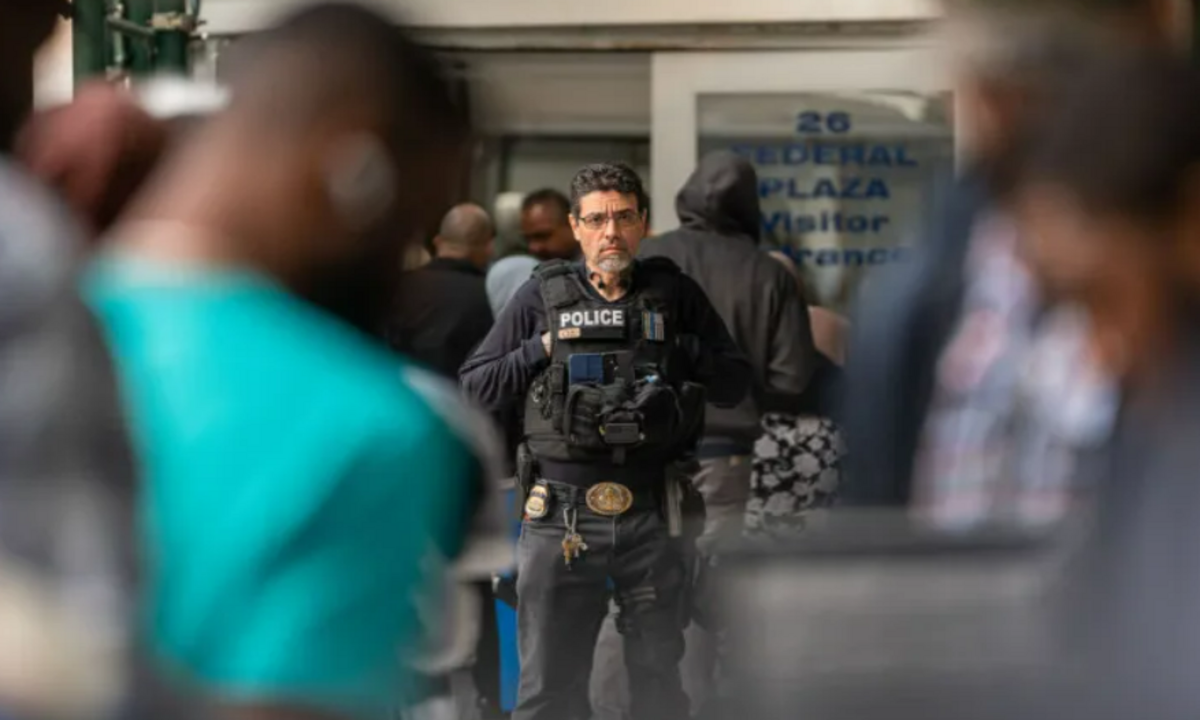Iowa lawmakers have moved forward with House Study Bill 187, a controversial proposal that would require all state and local law enforcement agencies to assist U.S. Immigration and Customs Enforcement (ICE) in identifying and detaining undocumented immigrants.
This bill, recently approved by a House Judiciary Subcommittee, is expected to have significant implications for both law enforcement agencies and immigrant communities across the state.
Under the proposed law, every Iowa law enforcement agency would be required to enter into formal agreements with ICE by January 1, 2026. These agreements would include participation in the jail enforcement model, a program that allows officers to identify individuals based on their citizenship status. Additionally, the agreements would involve the warrant service officer program, which enables officers to serve and execute administrative warrants related to immigration violations.
Supporters Say the Bill Enhances Public Safety
Supporters of the bill argue that it is essential for public safety and ensuring law enforcement agencies work closely with federal authorities to enforce immigration laws. Representative Steven Holt, a Republican from Denison, has been a strong advocate for the bill, stating that it is necessary to protect Iowa communities.
“Every nation has a right to secure its borders, and every nation has a right to control its borders in the interest of public safety. There’s a huge difference between legal and illegal immigration,” Holt told The Gazette.
Proponents believe that requiring local law enforcement to work with ICE will help prevent crime and ensure that undocumented immigrants who violate the law are properly identified and detained. They argue that by enforcing immigration laws at the state level, Iowa can deter illegal immigration and reduce potential threats to public safety.
Critics Warn of Racial Profiling and Fear in Immigrant Communities
However, the bill has also faced strong opposition from immigrant rights advocates and community leaders, who warn that it could lead to racial profiling and discourage immigrants from reporting crimes.
Organizations like the Iowa Migrant Movement for Justice have voiced concerns that the bill will unfairly target Latino and immigrant communities, making individuals more fearful of engaging with law enforcement. According to these advocates, requiring police officers to enforce immigration laws could make immigrant families more hesitant to seek help in emergencies, putting public safety at risk.
“This kind of legislation creates a climate of fear among immigrant communities. People will think twice before reporting crimes or cooperating with law enforcement, even if they are victims or witnesses,” an advocate from the Iowa Migrant Movement for Justice told the Iowa Capital Dispatch.
Critics also argue that the bill places an unnecessary burden on already overstretched police departments. Many local law enforcement agencies are struggling with staffing shortages and budget constraints, and requiring officers to take on additional immigration enforcement duties could further strain their resources.
Potential Legal Challenges and Impact on Local Police
If passed, the bill could face legal challenges, as similar laws in other states have been contested in court. Some legal experts argue that immigration enforcement is primarily a federal responsibility and that requiring local police to enforce immigration laws could lead to constitutional challenges.
Additionally, some police departments in Iowa have expressed concerns about the practical impact of the bill. Local law enforcement officials argue that their primary responsibility is to ensure public safety within their communities, and diverting resources to assist ICE could take away from other critical law enforcement duties.
What Happens Next?
House Study Bill 187 is expected to move through the legislative process in the coming months, with continued debate from both supporters and opponents. If approved by the full legislature and signed into law, Iowa would join a growing number of states that require local police to assist federal immigration authorities.
As the debate continues, the future of immigration enforcement in Iowa remains uncertain. While supporters see the bill as a step toward strengthening law and order, opponents warn of its potential negative impact on immigrant communities and local policing efforts.
For now, immigrant rights groups and law enforcement agencies are closely watching the progress of the bill, preparing for the potential consequences if it becomes law.
Disclaimer—Our team has checked this article to ensure its accuracy and eliminate any misinformation. We are committed to providing clear and reliable information for our readers.


